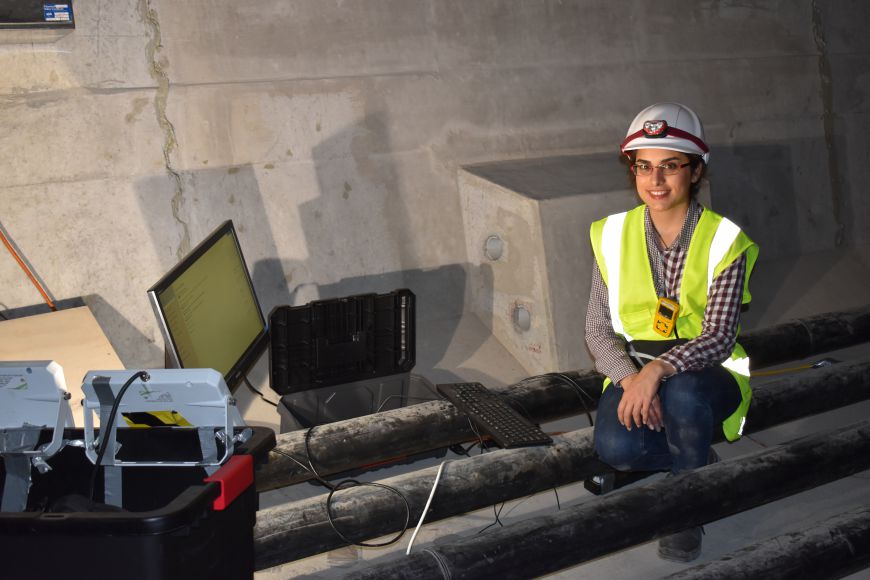Closing the gender gap in non-traditional programmes
In recent years more and more females are studying, and teaching, in non-traditional programme areas at the institute.
Reid Carnegie, Curriculum Manager, Engineering and Construction, says there’s been a steady increase in the number of females enrolling in engineering, construction and automotive programmes. This year, close to 50 per cent of the joinery programme students at NMIT are female. Reid says more and more females are entering the industry, as fully qualified or apprentice joiners—and workplaces are also wanting to employ more female joiners. “Joinery factory managers tell our tutors that females bring different qualities to their factory floor, they have great attention to detail, good communication skills and are able to work to a process well,” says Reid.
NMIT has also appointed its first female mechanical engineering tutor and has two female civil engineering tutors. “We have never had a female tutor in the mechanical engineering area before and it creates a very positive atmosphere in the workshop, plus she is a good role model— our female students automatically go up and talk to her,” Reid says. “The organisation also has a female mechanical engineering apprentice on the Level 4 programme, and she will have a female manager at the business who is employing her, as well as a female tutor.”
Civil Engineering tutor, Niusha Navabian (PhD Structural Eng.) joined NMIT from Auckland University of Technology where she was researching a new technology for assessing structural conditions after earthquake events. Niusha says women can excel in engineering fields and are very capable of solving engineering problems. “I believe talented, inspiring and driven female engineers across the globe have unlimited power to make the world a better place for mankind.” “I tell my students, ‘you as future female engineers need to believe in yourself and your goals before anyone else’. Their confidence and belief can also enable other women around the world.”
Originally from Sri Lanka, Dona Madushi Jayasinghe is a graduate from the NMIT civil engineering programme. Dona says the female tutors were excellent role models who maintained their identity in an intense, male dominated environment. Now working as a site engineer in a large contracting company she says civil design companies and contractors are actively seeking female engineers for technical and project management positions.
Aquaculture and Superyacht Crewing programmes also attract a high percentage of female students and offer a good pathway for females who wish to work on the water. NMIT is a signatory to the She of the Sea Pledge which commits organisations to creating a diverse and inclusive yachting industry.
NMIT Chief Executive Wayne Jackson says having female tutors in traditionally non-female programme areas demonstrates the real career opportunities available for women. “Women are underrepresented in occupations across many occupational groups including the construction trades, science, technology, engineering, and math fields.” “However, we are encouraged by the interest we are getting from females in our trades and engineering programmes, and they are also well represented across the primary industries areas of viticulture, horticulture and winemaking,” says Wayne.
This year 7.3 per cent of NMIT engineering and construction apprentice students are female.

NMIT Civil Engineering tutor, Niusha Navabian (PhD Structural Eng) instrumenting Newmarket Viaduct in Auckland with an earthquake monitoring system.
